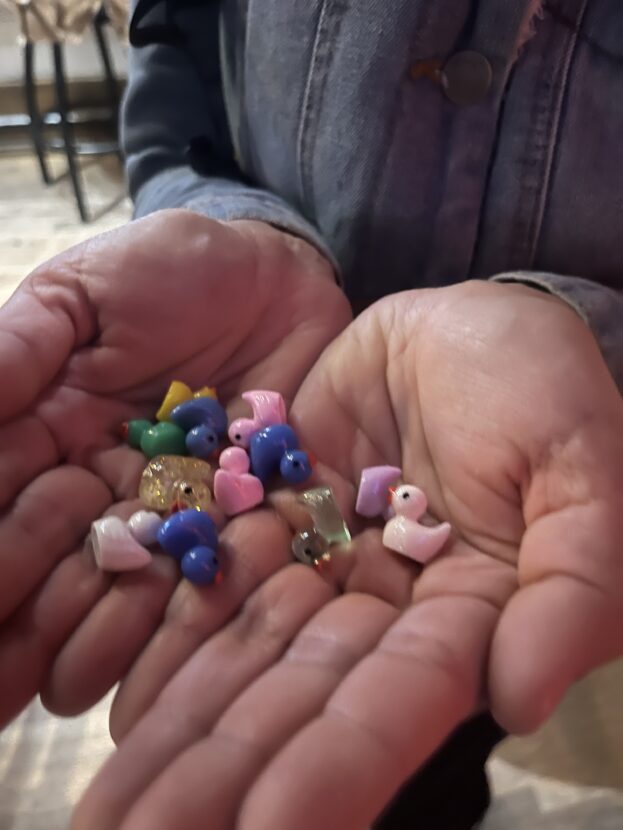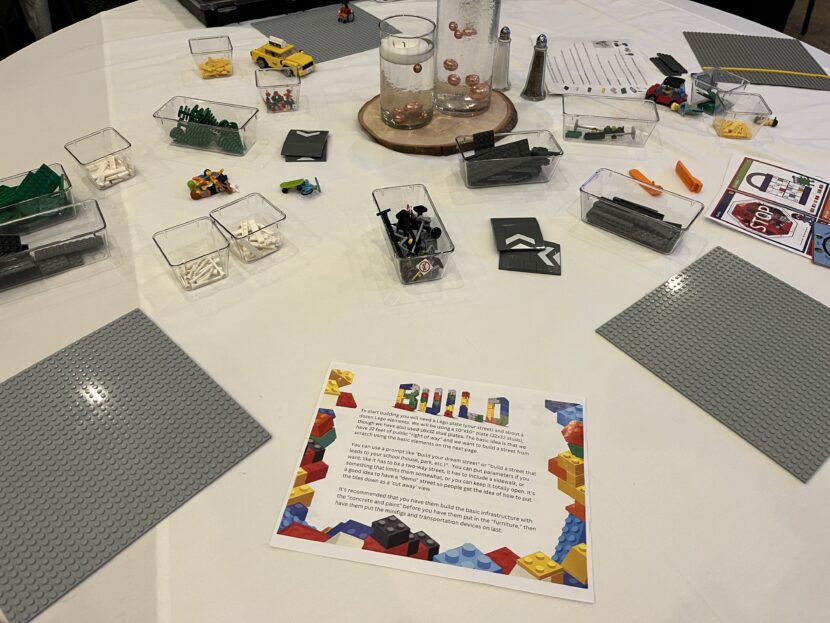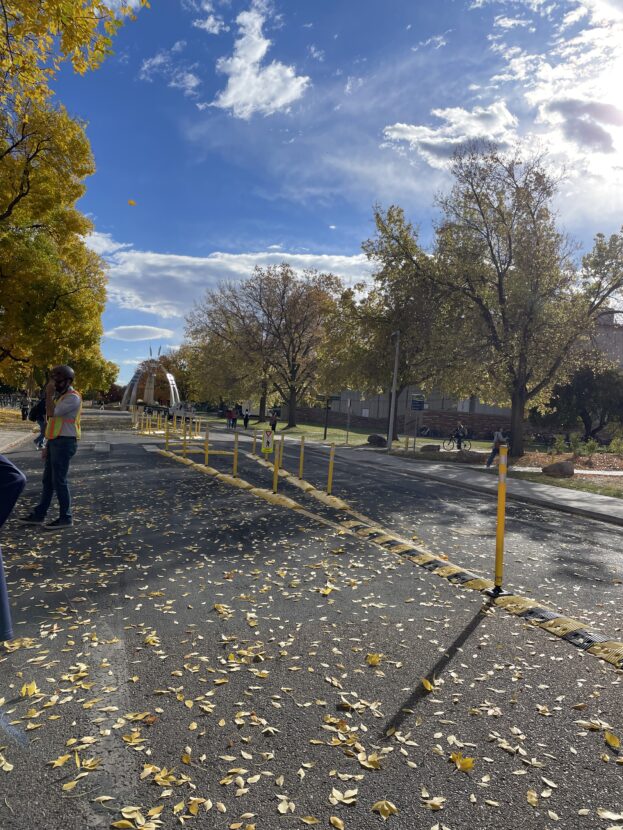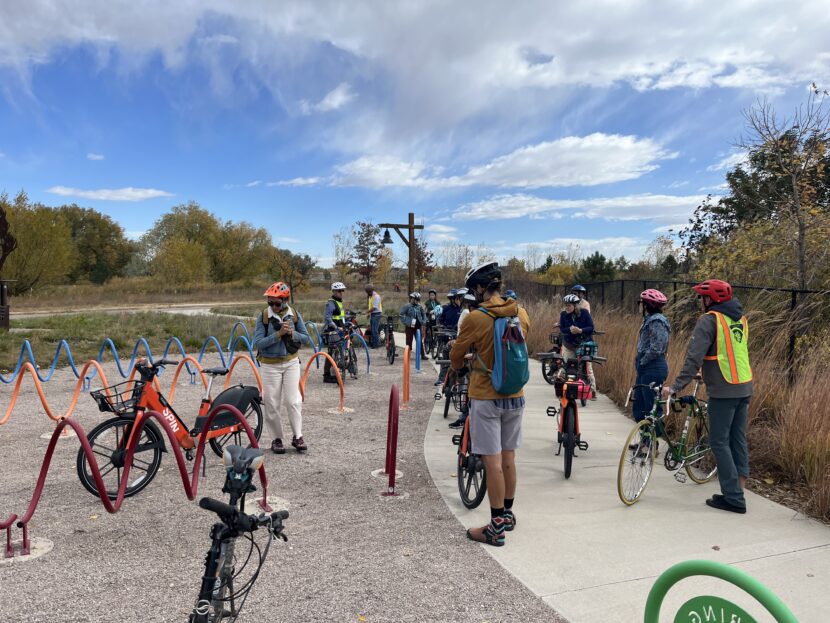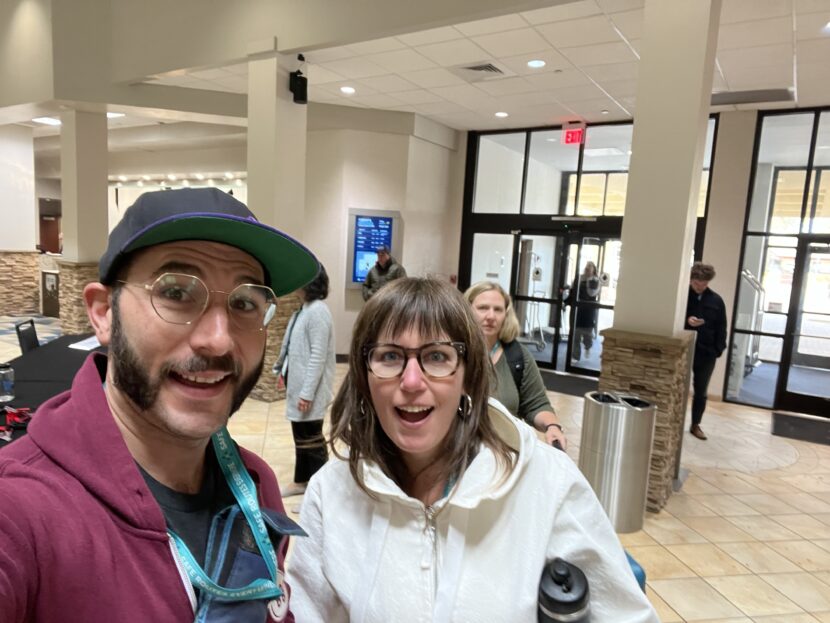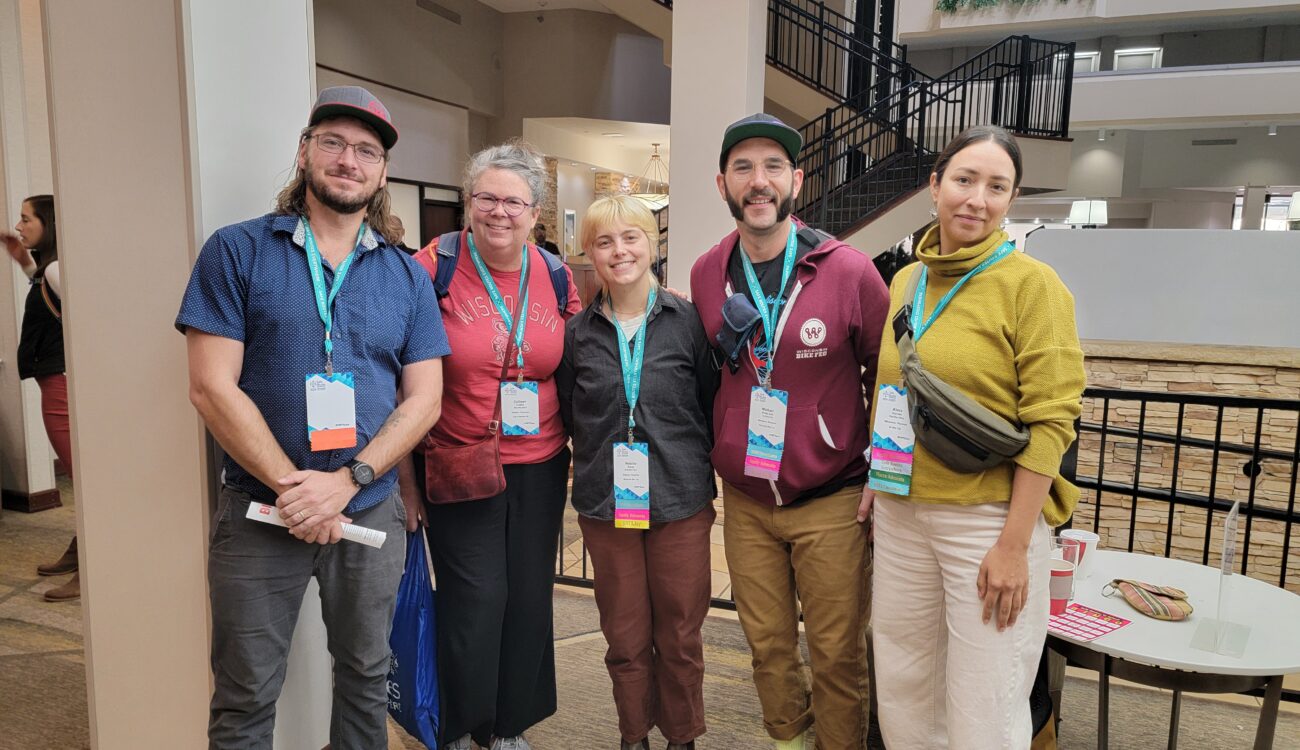
Lessons from the National Safe Routes to School Conference
October 22nd-24th, 2024 Safe Routes to School practitioners from around the country came together to share and learn from each other at the National Safe Routes to School Conference in Fort Collins, Colorado.
Four members of the Bike Fed had the opportunity to attend, present at, and participate in this conference. On the Safe Routes Partnership’s 2024 Report Card Wisconsin is given 54 out of a possible 200 points; meaning we have a long way to go as a state to building a truly child friendly built environment in Wisconsin. Read on for our insights from the conference.
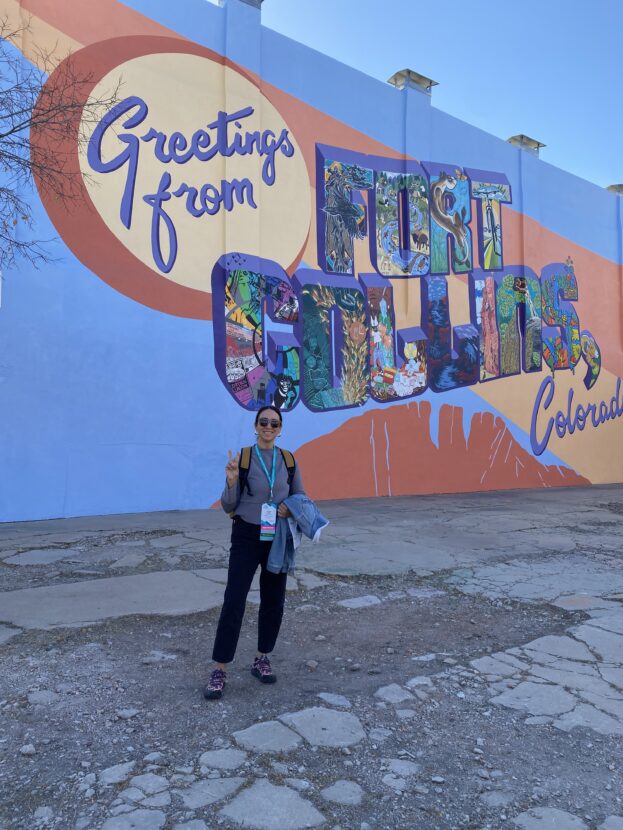
Alora Correa, Milwaukee High School Program Manager
The conference was a completely unique and inspiring experience. Every session was packed full of information about the who, the what, and the whys of Safe Routes to School Programs. Representatives from all over the country were there to share their knowledge with the community and inspire others. I attended sessions about the power of Vision Zero Data, how to use GIS mapping technology, and the importance of Pop-up Projects that can lead to long term investments. Each person who presented was visibly excited and passionate about the work they do.
As this was a conference centered on walking, rolling, and riding, I seized every opportunity to get on a bike or jump on the MAX bus line. I took a tour of the Historic Downtown Fort Collins and the Colorado State University campus. Being in a city that has invested immensely into bike and pedestrian infrastructure as well as public transit filled me with encouragement. This conference provided me plenty of food for thought to bring back to my programs here in Milwaukee. I’m so glad to have been able to share this experience with the Bike Fed Program Team.
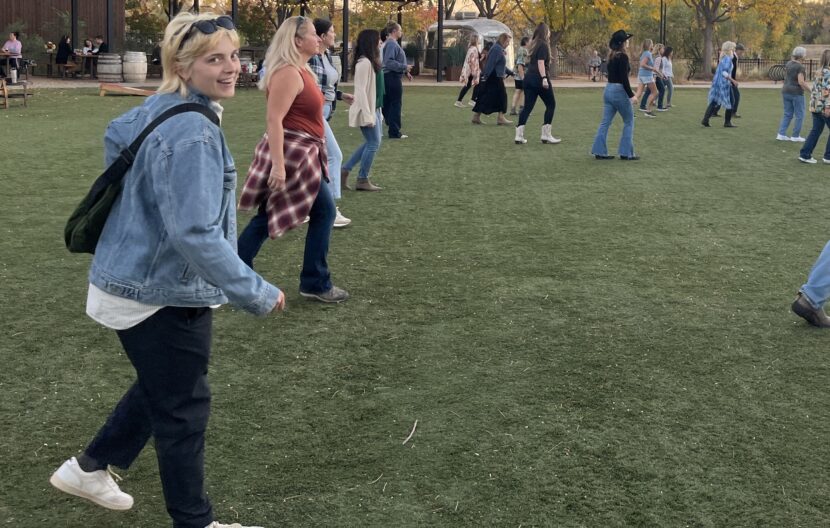
Natalie Schad, Dane Co Youth Education Program Manager
It was a joyous experience to attend the conference. Three days fly by fast when you’re talking with other active transportation folks, learning from panelists, and biking through Fort Collins on their speedy Spin e-bikes. One theme that kept popping up was how others view challenges with a strength-based mindset rather than a deficit mindset. It turns out that Safe Routes to Schools programs across the country run into a lot of the same challenges. It was inspiring to hear how different organizations tackle those problems. One example was the simple fact that an increasing number of kids don’t know how to ride a bike in middle school so a SRTS program in Oregon started learn-to-ride programs in kindergarten and first grade. By focusing on what they could build from, organizations were able to develop effective programming in their communities and reach more students.
Outside of learning from panelists and speakers, it was fun to engage with other SRTS folks. There are so many angles to build a Safe Routes program from whether it be public health, transportation planning, community building, statewide, or hyper local. I’m grateful to have attended and connected with other people who are passionate about making their communities safer for everyone to walk, roll, and bike wherever they want to go.
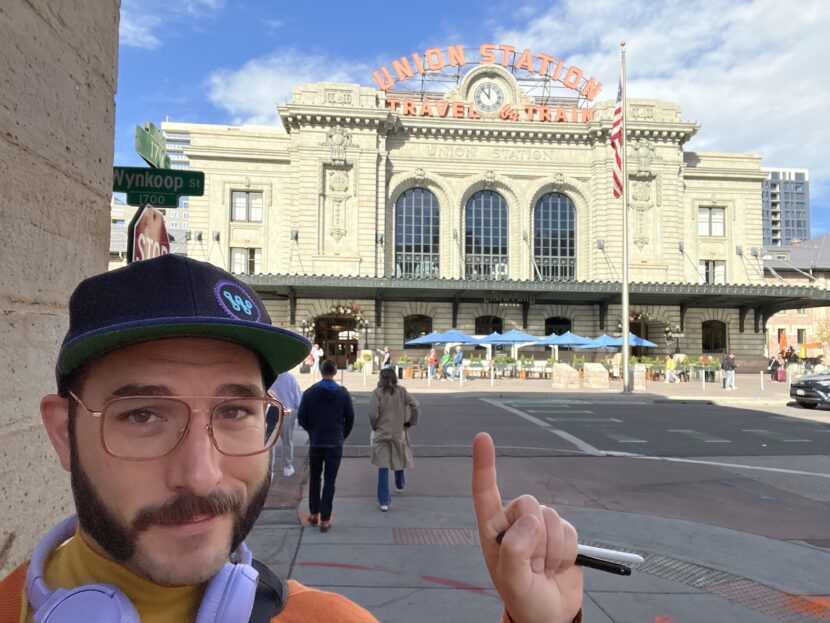
Michael Anderson, Milwaukee Youth Programs Manager
This was my 2nd SRTS conference, having previously attended in 2019 in Tampa as I was stepping into my new role as our Milwaukee Youth Programs Manager. We took home such great inspiration that it has continued to influence the development of our practices and programs. Meeting peers from around the country provides a vital opportunity to learn how to address the unique child mobility challenges in our communities. In an age of hyper-partisan politics a recurring theme this year was reframing issues to identify our collective values and shared vision. As the conference occurred just prior to Halloween, framing around the emotional and nostalgic appeal of restoring communities to a time when children had the freedom to safely roam and explore their communities, is a powerful tool to bring us together.
Many of the sessions that I attended centered around the needs of the disabled community as well building out safe networks to parks. These sessions were reframed with the term movability rather than walkability or bikeability recentering people of all ages and abilities as our common health need is the ability to simply enjoy our movements in our neighborhoods. A key takeaway is that successful complete streets efforts contain pathways, programs, and places. Hearing this helped affirm work we are building in Milwaukee, though we still have a long way to go and funding gaps abound, it was beautiful to see that we are in many ways on par with our peers. A particular example of this is the coalition we have built around Galena on Milwaukee’s Westside, which includes pathways, programs, and places; anchoring two county parks, with bike programs for youth via traffic calmed neighborhood streets.
Just as I was in 2019 in Tampa, I am inspired and excited to build upon the many lessons learned from our time in Fort Collins. It reaffirmed many of the ways our Milwaukee community already glows and brought to light specific areas where we need to come together to grow.
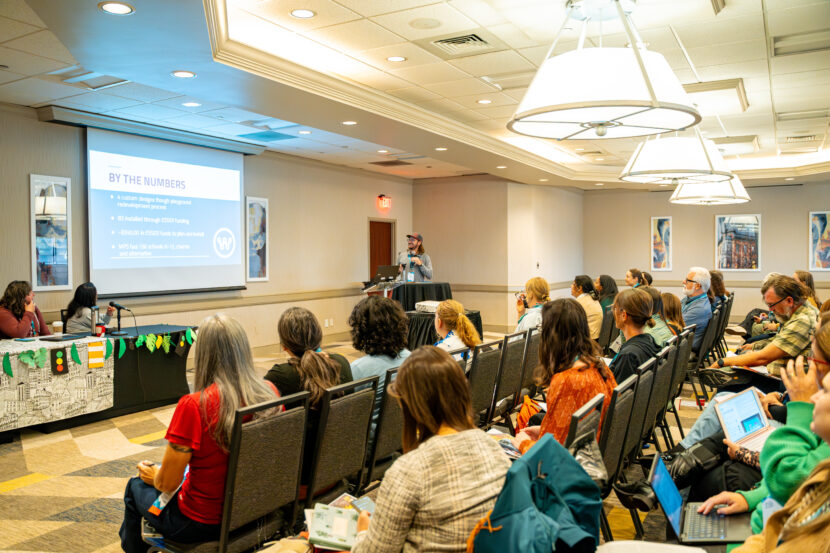
Jake Newborn, Assistant Director
This was my 4th National Safe Routes to School Conference and it was so nice to see folks I’ve met at past conferences again or only met virtually. One of the great things of this conference continues to be the networking and positive reinforcement inspiring us to keep doing great work. It’s nice to see that our work is very inline with what other colleagues are accomplishing if not on an even larger scale. Bike Fed staff and partners in Safe Routes are doing great work!
It was great to present on Traffic Gardens in Milwaukee and beyond with my panel partners Fionnuala Quinn, Kerri Wilson, and Andrea Garland. The turnout was great and we thank everyone who filled the room for our 8am presentation! As we continue developing programming around MPS’ traffic gardens we are excited to share and play a leading role in this realm.
The E-bike discussion was very eye opening to see how in communities where they have taken off, like Colorado, Oregon, and California, hearing about the pros and the cons of the increase of e-bikes. An increasing number of kids are using them but there are many unsafe options from online sellers including devices that aren’t even e-bikes; more like mini motorcycles taking over using throttles when not appropriate. The lively discussion and crowd support for ideas such as research grants in Minnesota was incredibly inspiring and engaging. In Wisconsin we have mostly seen adults take on e-bikes as a great way to reduce car trips, ride further and longer, and to extend their cargo ability. Stay tuned as we work across the state to stay ahead of the education and encouragement needs in the e-bike realm.
I’m already looking forward to the 2026 conference and ways the Bike Fed can present the valuable work we do here in our Wisconsin communities.
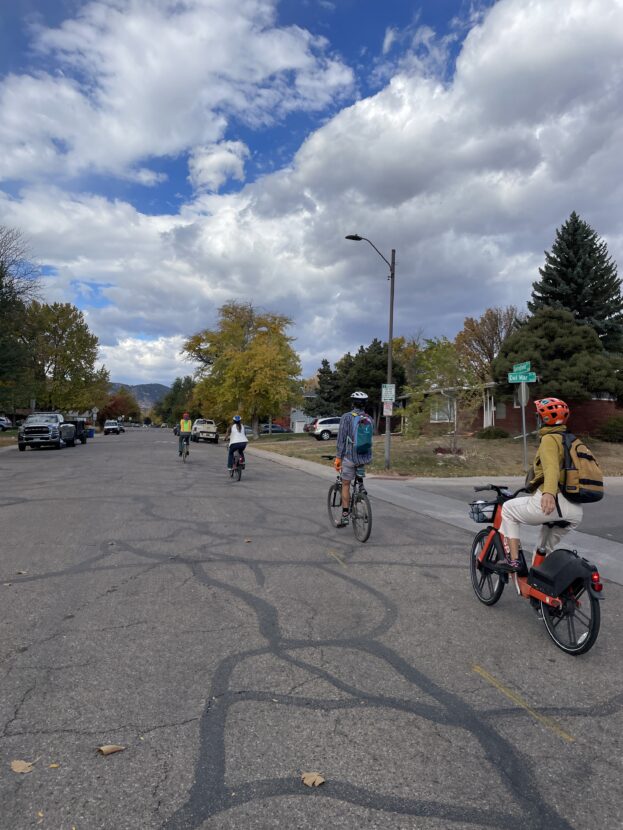
Rolling Forward: Next Steps in Wisconsin SRTS
With all of the wonderful Safe Routes work happening both at the Bike Fed and in communities around Wisconsin such as at East Central Regional Planning Commission you may be wondering why our Safe Routes ranking is so low. A lot of it has to do with funding mechanisms at the state level. Highly successful programs have managed to grow with unique dedicated funding structures and staffing at both municipal and state levels. Fortunately, the Bike Fed has long been tuned into areas where the state needs to improve. One positive example came this past year, when we were contracted to support rural communities in applying for Transportation Alternative Program funds from WisDOT as many smaller communities don’t have grant writing capacity. Due to this effort and others led by the Bike Fed we have helped ensure that more money marked for bike and walk programs is accessed across the state. Still, barriers to funding are in place as the match to access these federal grant funds still poses burdensome challenges for many communities. Fortunately, this conference highlighted creative partnerships that we as Wisconsinites can build to address these needs. Whether it be partnering with Public Health or encouraging state leaders to allow Highway Safety Improvement Program funding to be utilized as a match to develop SRTS programs, stay tuned as we share actions we can take to improve our ranking as we work together to build a truly inclusive and child friendly built environment in Wisconsin.
Want to help the Wisconsin Bike Fed make matches on our Transportation Alternative Program/Safe Routes?
Make a donation today. Thank you!
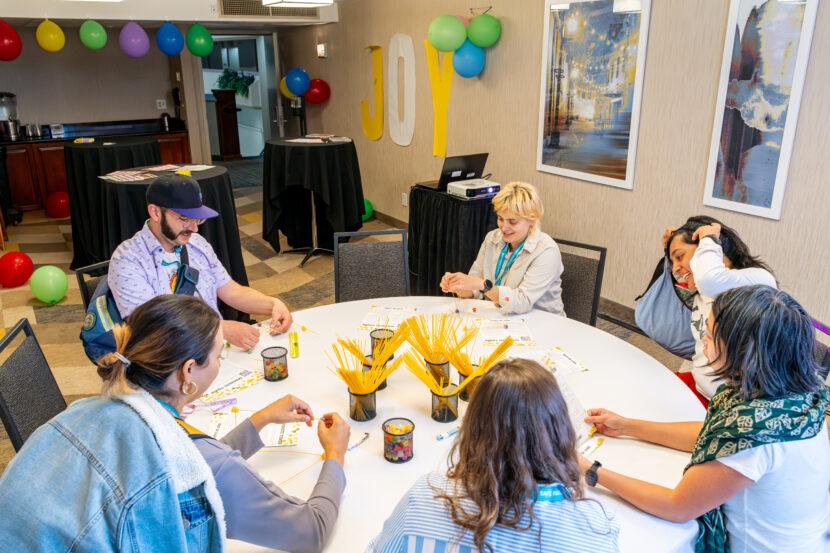
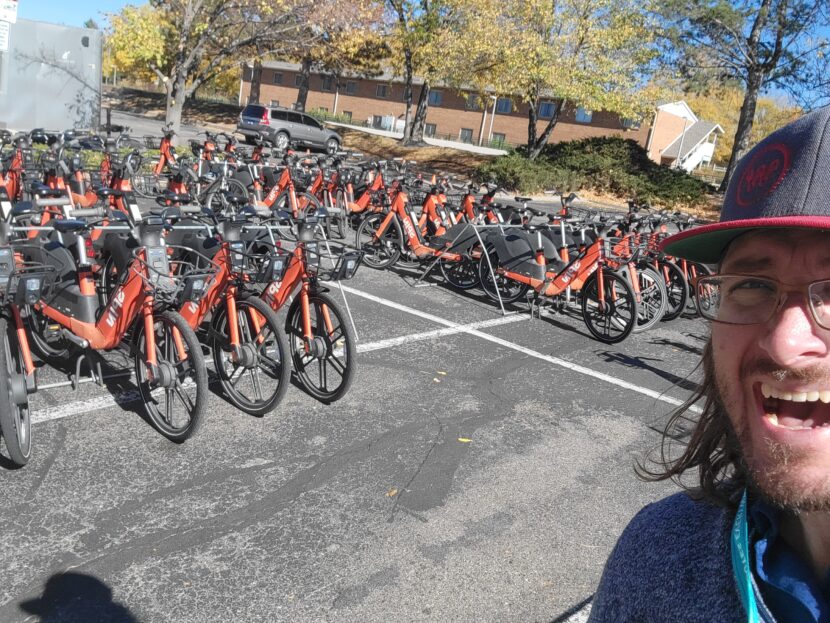
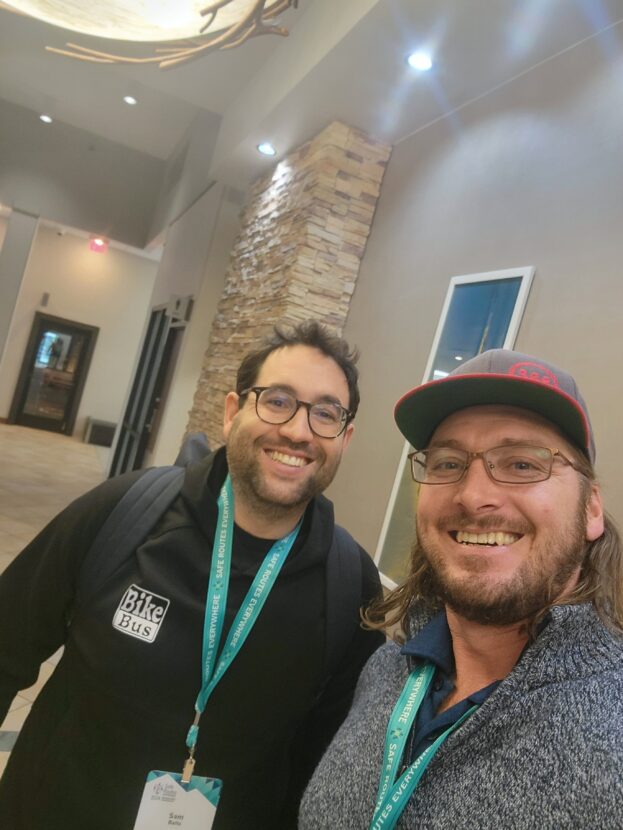
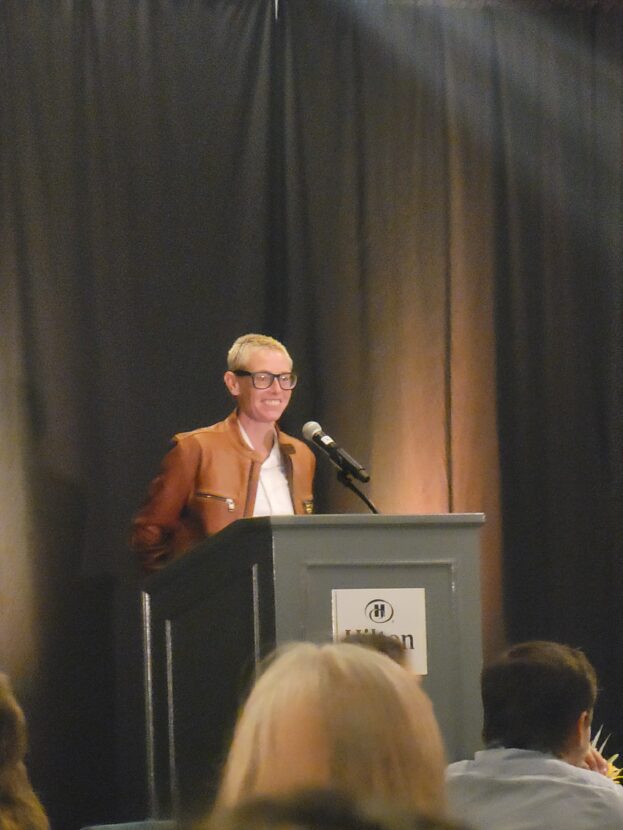
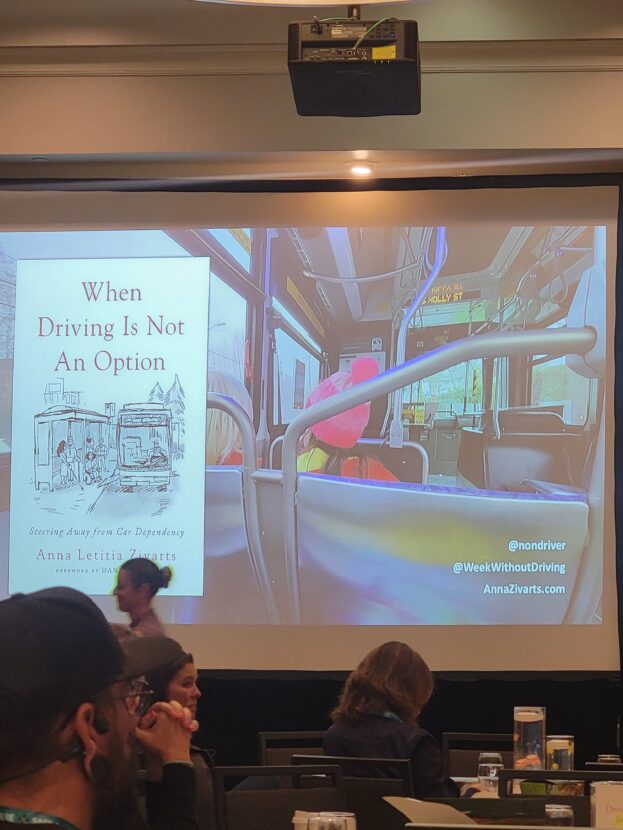
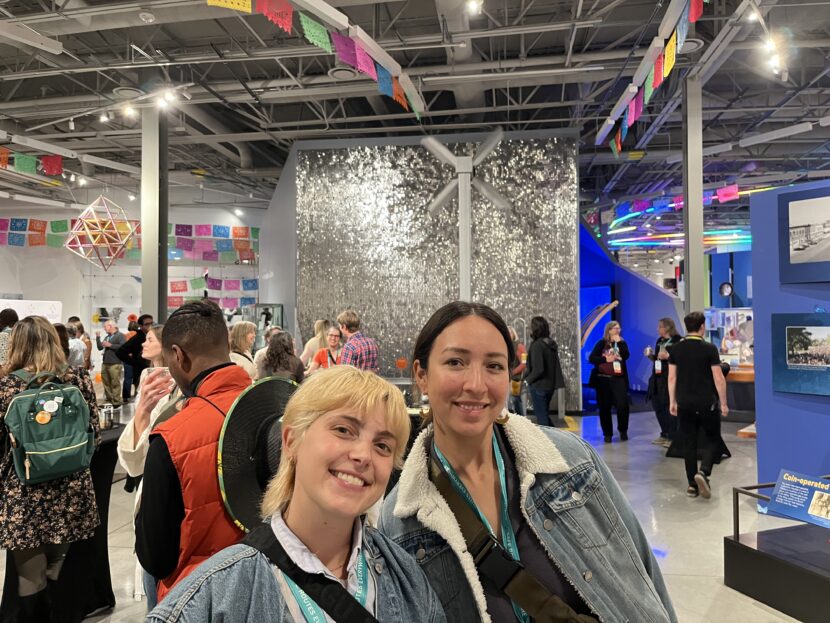
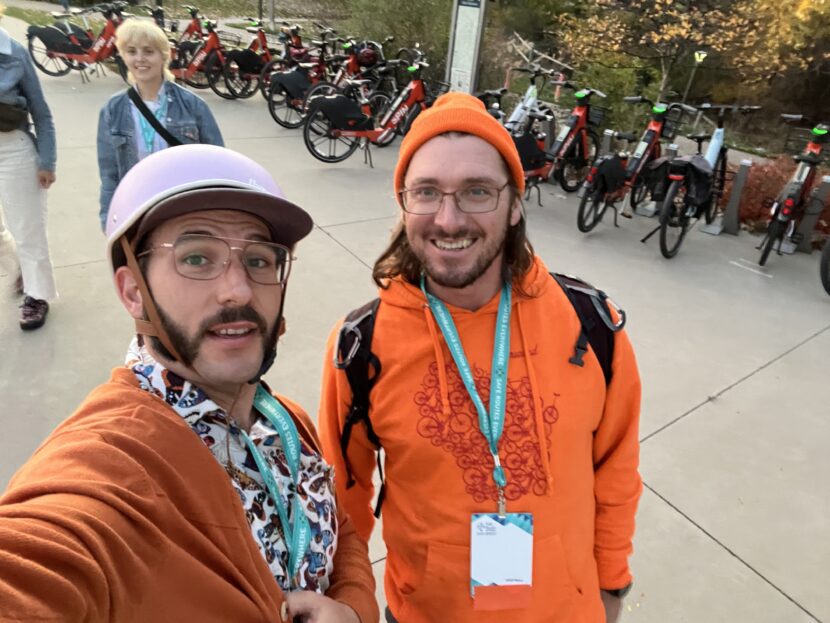
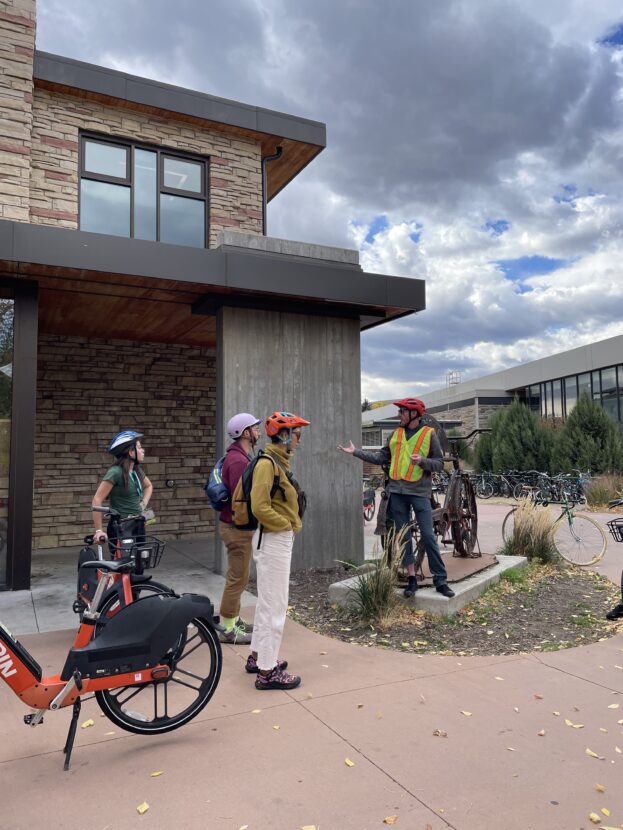
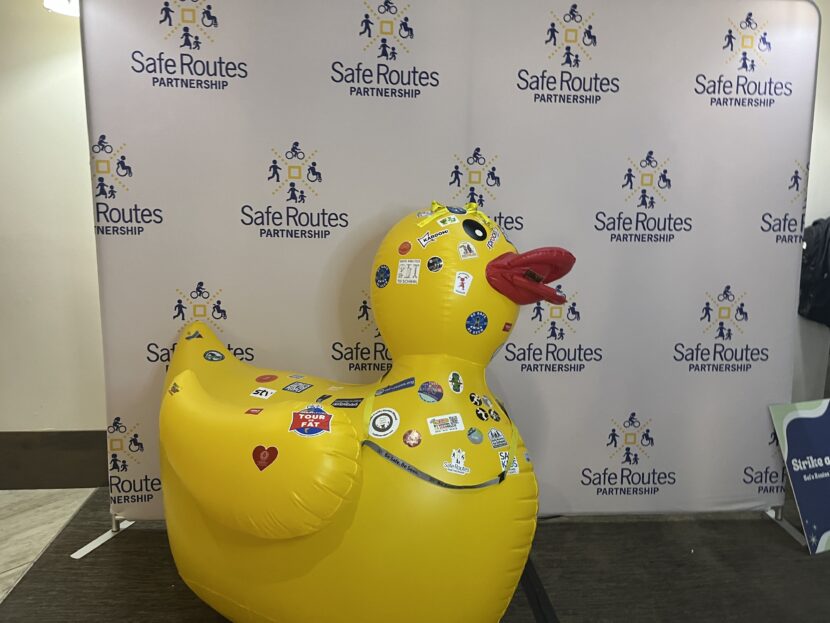
Ducks were a fun engagement theme. This duck is covered in bike org stickers from around the country. Conference goers who found the most mini-ducks won a prize!
